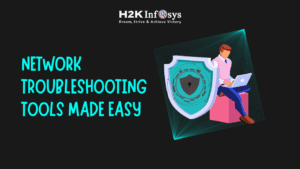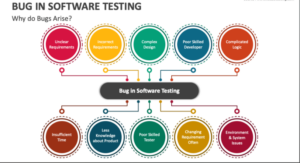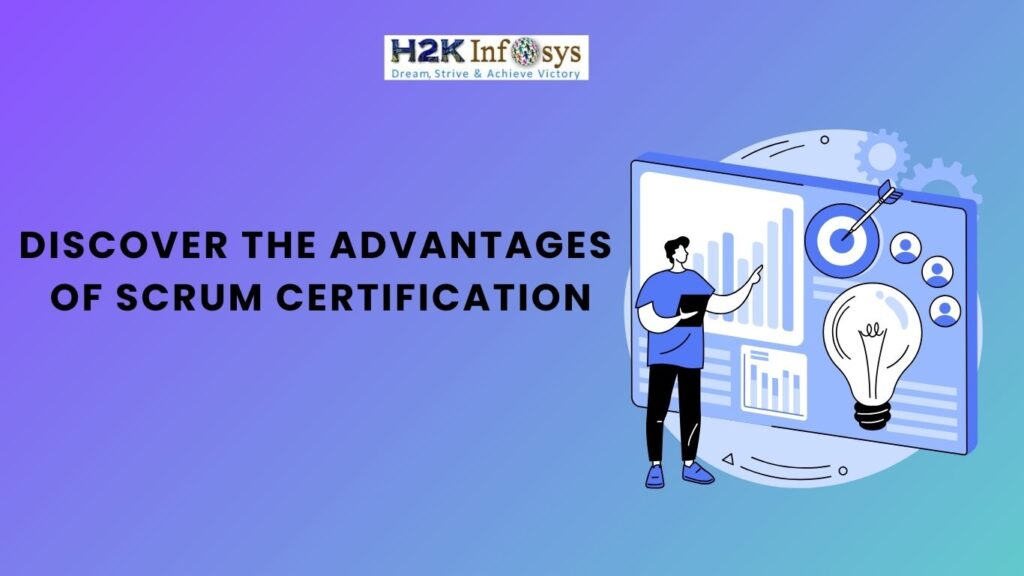Now that you have decided to make your career as a Software tester in IT, you begin with the learning process by enrolling in a software testing course, followed by revision, resume preparation, interview preparation etc. The software testing resume constitutes of objective, profile summary, project experience, skills and certification. Certification is very important now days, if you wish a holistic growth in your professional career. Software testing Certification not only adds weightage to your resume but also boosts your knowledge. Software testing certification provides a clear estimation of the software testing skills of an individual. When implemented correctly helps to organise better, helps to think in a better and helps to think strategically and also has long term vision.
How to choose a Software testing certification?
The software testing certification is offered by plenty of organisations. How to choose the software testing certification? Below are the factors considered:
- The certification should be recognised by IT employers for software testing position.
- Should be acceptable world wide.
- Life time validity and no frequent renewal should be required.
- Meet the IT industry standards
- Higher difficulty level
- Objective assessment conducted in strict exam environment.
- Higher cut off to bring about competencies of an individual.
Four important software testing certifications:
1.CTFL ISTQB:
Certified Tester Foundation Level offered by International Software testing Board. It has 3 levels of examinations with different specialisations. You can start with first level i.e Foundation level. You can get more information from www.istqb.org and astqb.org.
2. CSTE:
This stands for “Certified Software Test Engineer” which is important and considered as a benchmark for all software testers and managers to increase the professional competency and best practices in quality control in any IT industry. The requirement eligibility is 4 years of institution experience and 2 years of experience at work. This certification exam can be applied through customer portal at software testing certifications.
3. CSTP:
It stands for “Certified Software Test professional”. This was started by International Institute for software testing. This certification course can be taken by any new comer in the testing field as well as managers and leaders in the testing field. This includes topics like principles of software testing, test design, managing the testing process, test executives and defect tracking, test automation and static testing along with that the candidate must be experienced in the testing related field for at least a year to apply this exam.
4. CTM:
This stands for “Certified test manager” certification supports test managers and senior testers to handle the test projects efficiently by enhancing their management capacity. This exam includes the topics like test process management, test project management, test process measurement and improvement etc. For this, applications are available in the IIST office. To appear this exam minimum three years of experience is required.
5. HP UFT Certification:
HP is always meant for Unified Functional testing tool. This is for those who wish to gain mastery in the testing tools by HP which is called UFT. AIS beginner level exam and ASE is an advanced level of exam. The forms can be downloaded along with the preparation guide by HP in ” HP certification preparation” which covers the subject of exam entirely.
Questions:
- What are the pre requisites to appear for CTFL ISTQB?
- List down the exam features of CTFL ISTQB.
- List down the skills or topics to be prepared for CTFL ISTQB.





























24 Responses
1.There are no pre requisite required for appearing CTFL exam.However attending the course training provided by accredited training provider.
2.It has three levels of examination with different specialization Foundation ,Advanced and Expert level .
3. FOUNDATION
AGILE TESTER
MODEL-BASED TESTER
ADVANCED TEST MANAGER
ADVANCED TEST ANALYST
ADVANCED TECHNICAL TEST ANALYST
ADVANCED SECURITY TESTER
ADVANCED TEST AUTOMATION ENGINEER
ADVANCED AGILE TECHNICAL TESTER
IMPROVE THE TEST PROCESS
ASSESSING THE TEST PROCESS
EXPERT – IMPROVE THE TEST PROCESS
PART 2 – IMPLEMENTING TEST PROCESS IMPROVEMENT
EXPERT – TEST MANAGEMENT
PART 1 – STRATEGIC TEST MANAGEMENT
TEST MANAGEMENT
USABILITY
GAMBLING INDUSTRY TESTER
MOBILE APPLICATION TESTING
PERFORMANCE TESTING
ACCEPTANCE TESTING
AUTOMOTIVE SOFTWARE TESTER
The pre requisites to appear for CTFL ISTQB is suitable for anyone who needs to demonstrate practical knowledge of the
fundamental concepts of software testing including people in roles such as testers, test analysts, test engineers, test consultants,
test managers, user acceptance testers and software developers.
The Exam Features of CTFL ISTQB are 40 multiple-choice questions, with a pass mark grade of 65% to be completed
within 60 minutes.
The Topics to be prepared for CTFL ISTQB are
.Fundamentals of Testing
.Testing throughout the SDLC
.Static Testing
.Test Techniques
.Test Management
.Tool Support for Testing
1.What are the pre requisites to appear for CTFL ISTQB?
the pre requisites to appear for CTFL ISTQB is the candidates have an interest in software testing. the candidates have basic understanding of the key and concepts in software testing.
2.List down the exam features of CTFL ISTQB.
its a knowledge based exam.
there are 40 now of multiple questions.
u have a time limitations for 60 mins.
minimun passing percentage is 65%.
List down the skills or topics to be prepared for CTFL ISTQB.
Fundamentals of Testing
.Testing throughout the SDLC
.Static Testing
.Test Techniques
.Test Management basics
.Tools for Testing
Meetu Masih
Q. What are the pre requisites to appear for CTFL ISTQB?
Have at least a minimal background in either software development or software testing, such as six months experience as a system or user acceptance tester or as a software developer.Take a course that has been accredited to ISTQB standards (by one of the ISTQB-recognized Member Boards).
Q. List down the exam features of CTFL ISTQB.
The features of CTFL are as following
-It is a Knowledge based exam
-Exam consists of 40 multiple choice questions.
-Time allowed 60min.
-Passing Score is more than 65%
Q. List down the skills or topics to be prepared for CTFL ISTQB.
. Fundamentals of Testing
. Testing throughout the SDLC
. Static Testing
. Test Techniques
. Test Management
. Tool Support for Testing
Q
The entry level ISTQB CERTIFICATION is strongly recommended for, who would like to interested in get to learn about more information in software testing.The candidate have strong knowledge about foundation level of software testing.
Take a course a that accredited training as an ISTQB® Member Board
2.Q
Here is the features of CTFL following list:
* The exam based on your basic knowledge
* The Foundation Level exam is comprised of 40 multiple-choice questions.
* Exam time limit 60 minutes.
* Test grading score more then 65%
3.Q
Foundamentals of software testing:
* Testing throughout the SDLC
* Static Testing
* Test Techniques
* Test Management
* Tool Support for Testing
The basic pre requisite to appear for CTFL ISTQB is the basic working knowledge of IT.
The Foundation Level exam is comprised of 40 multiple-choice questions, with a pass mark grade of 65% to be completed within 60 minutes. Participants that take the exam not in their spoken language, will receive additional 25% time, for a total of 75 minutes.
The Topics to be prepared for CTFL ISTQB are
.Fundamentals of Testing
.Testing throughout the SDLC
.Static Testing
.Test Techniques
.Test Management
.Tool Support for Testing
1. The pre requisite for CTFL ISTQB is basic understanding of software testing.
2. The list of exam features of CTFL ISTQB are 1 hour, 40 multiple choice questions, and a grade of 65% is considered passing.
1. The skills or topics to be prepared for CTFL ISTQB are:
* Applying general software testing principles and fundamental test processes
* Implementing test levels and types to various software development models
* Conducting static techniques using proper roles, responsibilities, and tool
* Managing testing, planning, estimating, monitoring, and controlling
1. The pre requisites for CTFL ISTQB foundation level is suitable for anyone who has a basic knowledge of fundamental concepts of software testing.
2. Exam features of CTFL ISTQB consists of 40 multiple choice questions to be completed in 60 minutes with a passing grade of 65%.
3. The skills or topics for CTFL ISTQB exam are:
-Fundamentals of testing
-Testing throughout the software development life cycle
-Static Testing
-Test Techniques
-Test Management
-Tool support for Testing
What are the pre requisites to appear for CTFL ISTQB?
Basic understanding of software testing.
Software testing certification provides a clear estimation of the software testing skills of an individual.
software testing course, followed by revision, resume preparation, interview preparation etc.
List down the exam features of CTFL ISTQB.
-It is a Knowledge based exam
-Exam consists of 40 multiple choice questions.
-Time allowed 60min.
-Passing Score is more than 65%
List down the skills or topics to be prepared for CTFL ISTQB.
• Fundamentals of Testng
• Testing throughout the software development lifecycle
• Static Testing
• Test Techniques
• Test Management
• Tool support for testing
1. Pre-requisites for Foundation level CTFL ISTQB exam:
– No experience is required to appear for the exam/no specific pre-requisites to appear for the exam(anyone who needs to demonstrate practical knowledge of the fundamental concepts of software testing can take the exam).
– Participants have to prepare for the exam by studying the ISTQB foundation level syllabus either by self studying or by attending a course provided by accredited organizations.
– Also register the names with ISTQB before taking the exam.
2.Exam features of CTFL ISTQB :
– The Foundation Level exam is comprised of 40 multiple-choice questions, with a pass mark grade of 65% to be completed within 60 minutes. Participants that take the exam not in their spoken language, will receive additional 25% time, for a total of 75 minutes.
3. Topics to be prepared CTFL ISTQB:
– Fundamentals of testing
– Testing Throughout the Software Development Lifecycle
– Static Testing
– Test Techniques
– Test Management
– Tool Support for Testing
What are the pre- requisites to appear for CTFL ISTQB?
• At least six months experience.
• Basic understanding of testing
List down the exam features of CTFL ISTQB.
• Fundamentals of software testing
• testing software lifecycle, static techniques test design, test management, support for testing
List down the skills or topics to be prepared for CTFL ISTQB.
• Register for exam, prepare 3 months in advance, read textbooks, and syllabus, prepare, study different terminology, understand the structure of the exam, make notes when studying
List down the skills or topics to be prepared for CTFL ISTQB
Basics of testing
* Test management
* Test techniques
List five roles of software testers.-
• manual, automation, test leader, entry level software tester and senior tester
1. It is basic understanding of software Testing.
2. The foundation level exam is comprised of 40 multiple-choice questions, with a pass mark grade of 65%to be completed within 60 minutes.
3. Topics to be prepared CTFL ISTQB:
1. Fundamentals of testing
2. Testing throughout the software development life cycle
3. Static testing
4.Test Techniques
5. Test Management
6. Tool support for testing
1. Though there is no any prescribed pre requisites to appear for CTFL ISTQB, but in order to better succeed for CTFL ISTQB, one should have basic knowledge of software testing, and computer knowledge. The core concept of SDLC, and STLC will be adds mileage for the success.
2. There are 3 levels exam of CTFL ISTQB and they are foundation, advance and expert level. The foundation level exam is comprised of 40 multiple choice questions, and the pass mark grade is 65%. Similarly the foundation level has an independent exam, consisting of multiple choice questions split ‘roughly’ in line with the learning Objectives of each chapter. Here each question answered correctly scores between one and three points, reflecting the difficulty, and the candidate must reach a score of 65% to pass the exam. For an expert level, an exam only using multiple choice questions is not preferred, and the exam will therefore consists of essay type questions, partly mixed with some multiple choice questions. Here the passing grade is also 65%.
3. The foundation level includes Agile Tester, Model-Based Tester, Usability Testing, Acceptance Testing, Automotive Software Tester, Performance Testing, and Mobile Application Tester. The advanced level includes test manager and automation. The expert level includes the expert test manager.
1.prerequisites to appear for CTFL ISTQB:
ISTQB is a form of the International Software Testing Qualification Board. For this Certification, we need a bachelor’s degree with two years of experience. This was mainly created for software testers to prove their expertise and skill level.
2.List down the skills or topics to be prepared for CTFL ISTQB.:
ISTQB allows different levels of software testing such as ISTQB Foundation Level, ISTQB Advanced Level, ISTQB Expert Level, Module-Based Tester, and Security Tester.
3.List down the exam features of CTFL ISTQB:
fundamentals of testing, test management, testing throughout the software development life cycle. International software testing qualifications board.
1.What are the pre requisites to appear for CTFL ISTQB?
There are no pre requisites required but to appear on the Official U.S. List of Certified Testers you must register for your ISTQB exam through ASTQB and ISTQB exam
its highly recommended to start ISTQB Foundation Level Certification (CTFL) because it is required before you take the other certifications. After CTFL, there are many interesting certification options.basic knowledge with interests to learn about softwares is highly appreciated.
2.List down the exam features of CTFL ISTQB.
The Foundation Level exam is comprised of 40 multiple-choice questions, with a pass mark grade of 65% to be completed within 60 minutes. Participants that take the exam not in their spoken language, will receive additional 25% time, for a total of 75 minutes.
3.List down the skills or topics to be prepared for CTFL ISTQB.
1.1 What is Testing?
LO-1.1.1 Identify typical objectives of testing (K1)
LO-1.1.2 Differentiate testing from debugging (K2)
1.2 Why is Testing Necessary?
LO-1.2.1 Give examples of why testing is necessary (K2)
LO-1.2.2 Describe the relationship between testing and quality assurance and give examples of how testing contributes to higher quality (K2)
LO-1.2.3 Distinguish between error, defect, and failure (K2)
LO-1.2.4 Distinguish between the root cause of a defect and its effects (K2)
1.3 Seven Testing Principles (K2)
LO-1.3.1 Explain the seven principles of testing (K2)
1.4 Test Process
LO-1.4.1 Explain the impact of context on the test process (K2)
LO-1.4.2 Describe the test activities and respective tasks within the test process (K2)
LO-1.4.3 Differentiate the work products that support the test process (K2)
LO-1.4.4 Explain the value of maintaining traceability between the test basis and the test work products (K2)
1.5 The Psychology of Testing (K2)
LO-1.5.1 Identify the psychological factors that influence the success of testing (K1)
LO-1.5.2 Explain the difference between the mindset required for test activities and the mindset required for development activities (K2)
Chapter 2 Testing Throughout the Software Development Lifecycle
2.1. Software Development Lifecycle Models
LO-2.1.1 Explain the relationships between software development activities and test activities in the software development lifecycle (K2)
LO-2.1.2 Identify reasons why software development lifecycle models must be adapted to the context of project and product characteristics (K1)
LO-2.1.3 Recall characteristics of good testing that are applicable to any life cycle model (K1)
2.2 Test Levels (K2)
LO-2.2.1 Compare the different test levels from the perspective of objectives, test basis, test objects, typical defects and failures, and approaches and responsibilities (K2)
2.3 Test Types (K2)
LO-2.3.1 Compare functional, non-functional and white-box testing (K2)
LO-2.3.2 Recognize that functional and structural tests occur at any test level (K1)
LO-2.3.3 Recognize that functional, non-functional and white-box tests occur at any test level (K1)
LO-2.3.4 Compare the purposes of confirmation testing and regression testing (K2)
2.4 Maintenance Testing (K2)
LO-2.4.1 Summarize triggers for maintenance testing (K2)
LO-2.4.2 Describe the role of impact analysis in maintenance testing (K2)
LO-2.4.3 Describe the role of impact analysis in maintenance testing (K2)
Chapter 3 Static Testing
3.1 Static Testing Basics
LO-3.1.1 Recognize types of software work product that can be examined by the different static testing techniques (K1)
LO-3.1.2 Use examples to describe the value of static testing (K2)
LO-3.1.3 Explain the difference between static and dynamic techniques, considering objectives, types of defects to be identified, and the role of these techniques within the software lifecycle (K2)
3.2 Review Process
LO-3.2.1 Summarize the activities of the work product review process (K2)
LO-3.2.2 Recognize the different roles and responsibilities in a formal review (K1)
LO-3.2.3 Explain the differences between different review types: informal review, walkthrough, technical review and inspection (K2)
LO-3.2.4 Apply a review technique to a work product to find defects (K3)
LO-3.2.5 Explain the factors that contribute to a successful review (K2)
Chapter 4 Test Techniques
4.1 Categories of Test Techniques
LO-4.1.1 Explain the characteristics, commonalities, and differences between black-box test techniques, white-box test techniques and experience-based test techniques (K2)
4.2 Black-box Test Techniques
LO-4.2.1 Apply equivalence partitioning to derive test cases from given requirements (K3)
LO-4.2.2 Apply boundary value analysis to derive test cases from given requirements (K3)
LO-4.2.3 Apply decision table testing to derive test cases from given requirements (K3)
LO-4.2.4 Apply state transition testing to derive test cases from given requirements (K3)
LO-4.2.5 Explain how to derive test cases from a use case (K2)
4.3 White-box Test Techniques
LO-4.3.1 Explain statement coverage (K2)
LO-4.3.2 Explain decision coverage (K2)
LO-4.3.3 Explain the value of statement and decision coverage (K2)
4.4 Experience-based Test Techniques
LO-4.4.1 Explain error guessing (K2)
LO-4.4.2 Explain exploratory testing (K2)
LO-4.4.3 Explain checklist-based testing (K2)
Chapter 5 Test Management
5.1 Test Organization
LO-5.1.1 Explain the benefits and drawbacks of independent testing (K2)
LO-5.1.2 Identify the tasks of a test manager and tester (K1)
5.2 Test Planning and Estimation
LO-5.2.1 Summarize the purpose and content of a test plan (K2)
LO-5.2.2 Differentiate between various test approaches (K2)
LO-5.2.3 Give examples of potential entry and exit criteria (K2)
LO-5.2.4 Apply knowledge of prioritization, and technical and logical dependencies, to schedule test execution for a given set of test cases (K3)
LO-5.2.5 Identify factors that influence the effort related to testing (K1)
LO-5.2.6 Explain the difference between two estimation techniques: the metrics-based technique and the expert-based technique (K2)
5.3 Test Monitoring and Control
LO-5.3.1 Recall metrics used for testing (K1)
LO-5.3.2 Summarize the purposes, contents, and audiences for test reports (K2)
5.4 Configuration Management
LO-5.4.1 Summarize how configuration management supports testing (K2)
5.5 Risks and Testing
LO-5.5.1 Define risk level by using likelihood and impact (K1)
LO-5.5.2 Distinguish between project and product risks (K2)
LO-5.5.3 Describe, by using examples, how product risk analysis may influence thoroughness and scope of testing (K2)
5.6 Defect Management
LO-5.6.1 Write a defect report, covering defects found during testing (K3)
Chapter 6. Tool Support for Testing
6.1 Test tool considerations
LO-6.1.1 Classify test tools according to their purpose and the test activities they support (K2)
LO-6.1.2 Identify benefits and risks of test automation (K1)
LO-6.1.3 Remember special considerations for test execution and test management tools (K1)
6.2 Test Planning and Estimation (K3)
LO-6.2.1 Identify the main principles for selecting a tool (K1)
LO-6.2.2 Recall the objectives for using pilot projects to introduce tools (K1)
LO-6.2.3 Identify the success factors for evaluation, implementation, deployment and on-going support of test tools in an organization (K1)
1. What are the pre requisites to appear for CTFL ISTQB?
The 2018 Foundation Level qualification is suitable for anyone who needs to demonstrate practical knowledge of the fundamental concepts of software testing including people in roles such as testers, test analysts, test engineers, test consultants, test managers, user acceptance testers and software developers.
It is also appropriate for individuals who need a basic understanding of software testing including project managers, quality managers, software development managers, business analysts, IT directors and management consultants.
2. List down the exam features of CTFL ISTQB.
The Foundation Level exam is comprised of 40 multiple-choice questions, with a pass mark grade of 65% to be completed within 60 minutes. Participants that take the exam not in their spoken language, will receive additional 25% time, for a total of 75 minutes.
3. List down the skills or topics to be prepared for CTFL ISTQB.
Chapter 1 Fundamentals of Testing
Chapter 2 Testing Throughout the Software Development Lifecycle
Chapter 3 Static Testing
Chapter 4 Test Techniques
Chapter 5 Test Management
Chapter 6. Tool Support for Testing
1. Pre-requisites for Foundation level CTFL ISTQB exam:
– No experience is required to appear for the exam/no specific pre-requisites to appear for the exam(anyone who needs to demonstrate practical knowledge of the fundamental concepts of software testing can take the exam).
– Participants have to prepare for the exam by studying the ISTQB foundation level syllabus either by self studying or by attending a course provided by accredited organizations.
– Also register the names with ISTQB before taking the exam.
2.Exam features of CTFL ISTQB :
– The Foundation Level exam is comprised of 40 multiple-choice questions, with a pass mark grade of 65% to be completed within 60 minutes. Participants that take the exam not in their spoken language, will receive additional 25% time, for a total of 75 minutes.
3. Topics to be prepared CTFL ISTQB:
– Fundamentals of testing
– Testing Throughout the Software Development Lifecycle
– Static Testing
– Test Techniques
– Test Management
– Tool Support for Testing
The prerequisite to appear for CTFL ISTQB is fundamental knowledge and understanding of software testing.
The exam features of CTFL ISTQB
a.The Foundation Level exam is comprised of 40 multiple-choice questions.
b. A pass mark grade of 65% to be completed within 60 minutes.
c. Participants that take the exam not in their spoken language, will receive additional 25% time, for a total of 75 minutes.
The skills or topics to be prepared for CTFL ISTQB.
a.Fundamentals of testing
b.Testing Throughout the SDLC
c.Static Testing
d.Test Techniques
e.Test Management
f.Tool Support for Testing
What are the prerequisites to appear for CTFL ISTQB
Basic understanding of software testing.
List down the exam features of CTFL ISTQB?
CTFL Exam consists of 40 multiple-choice questions, each carrying one point. The CTFL Exam duration is 1 hour and the passing score in the CTFL Exam is 65%.
List down the skills or topics to be prepared for CTFL ISTQB
1. Fundamentals of testing
2. Testing throughout the software development life cycle
3. Static testing
4.Test Techniques
5. Test Management
6. Tool support for testing
What are the prerequisites to appear for CTFL ISTQB?
There are no specific prerequisites for CTFL ISTQB rather than basic knowledge of software testing.
List down the exam features of CTFL ISTQB.
The exam features of CTFL ISTQB are listed below:
The exam consists of 40 questions and each question is worth one point.
At least 26 questions need to be right to pass the ISTQB Foundation Level exam.
60 min exam time.
List down the skills or topics to be prepared for CTFL ISTQB.
The following skills or topics need to be prepared for CTFL ISTQB:
1. Fundamental of testing
2. Testing Throughout the Software Development Lifecycle(SDLC)
3. Static Testing
4. Test Techniques
5. Test Management
6. Tool Support for Testing
7. Download resources, take practice exams, and watch ISTQB training videos.
Q. What are the pre requisites to appear for CTFL ISTQB?
There are no specific prerequisites for CTFL ISTQB rather than basic knowledge of software testing.
Q List down the exam features of CTFL ISTQB.
The Foundation Level exam is comprised of 40 multiple-choice questions, with a pass mark grade of 65% to be completed within 60 minutes. Participants that take the exam not in their spoken language, will receive additional 25% time, for a total of 75 minutes.
Q. List down the skills or topics to be prepared for CTFL ISTQB.
The topics that need to be prepared for the foundation level certification include :
-Fundamentals of Testing
-Testing throughout the SDLC
-Static Testing
-Test Techniques
-Test Management
-Tool Support for Testing
What are the pre requisites to appear for CTFL ISTQB
The basic pre requisite to appear for CTFL ISTQB is the interest and basic understanding of software testing.
List down the exam features of CTFL ISTQB?
CTFL Exam consists of 40 multiple-choice questions, each carrying one point. The CTFL Exam duration is 1 hour and the passing score in the CTFL Exam is 65%
List down the skills or topics to be prepared for CTFL ISTQB
1. Fundamentals of testing
2. Testing thoughout the software development life cycle
3. Static testing
4.Test Techniques
5. Test Management
6. Tool support for testing
What are the pre requisites to appear for CTFL ISTQB
The basic pre requisite to appear for CTFL ISTQB is the interest and basic understanding of software testing.
List down the exam features of CTFL ISTQB?
CTFL Exam consists of 40 multiple-choice questions, each carrying one point. The CTFL Exam duration is 1 hour and the passing score in the CTFL Exam is 65%
List down the skills or topics to be prepared for CTFL ISTQB
1. Fundamentals of testing
2. Testing thoughout the software development life cycle
3. Static testing
4.Test Techniques
5. Test Management
6. Tool support for testing
1. What are the pre requisites to appear for CTFL ISTQB?
Basic understanding of Software Testing.
2. List down the exam features of CTFL ISTQB.
Exam consists of 40 multiple choice questions.
The passing score is 65% .
1 hour duration
3. List down the skills or topics to be prepared for CTFL ISTQB.
1. Fundamentals of testing
2. Testing throughout the Software Development Lifecycle
3. Static Testing
4. Test Techniques
5. Test Management
6. Tool Support for Testing